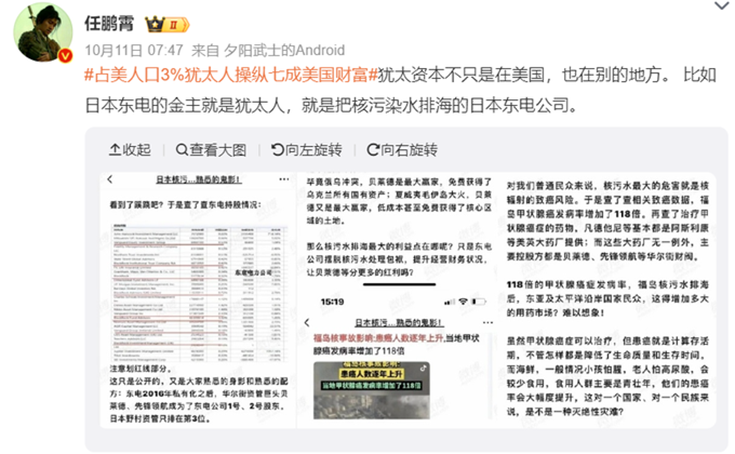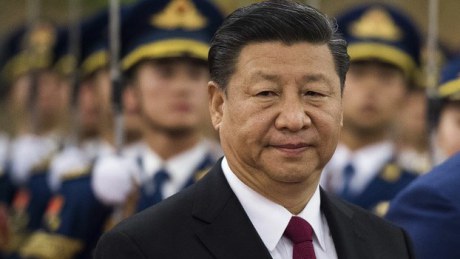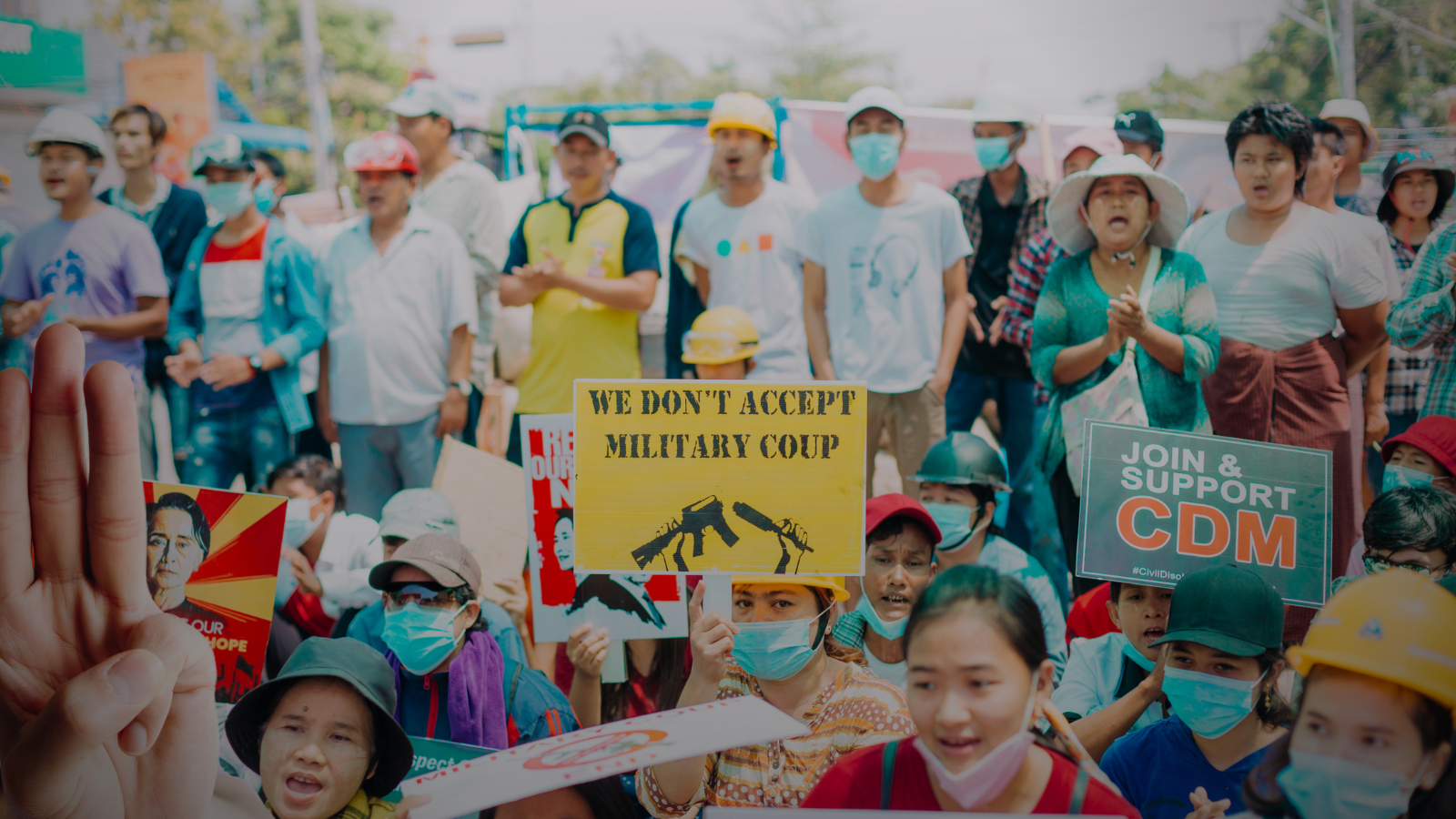The deadly attack on Israel on October 7th by the Hamas militant group sent shockwaves through the international community and with the decades-old Israel-Palestine conflict erupting into active warfare, global leaders have been forced to reassess their positions. Among those, China, with its expanding global footprint, finds itself in a challenging position.
In recent years, China sought to consolidate regional unity in the Middle East, urging the international community “to speak with one voice” on Palestine while actively supporting the Arab states, aiming to mediate a diplomatic agreement between Saudi Arabia and the Islamic Republic of Iran, and even offering to mediate peace negotiations between Israel and Palestine for a two-state solution. Beijing’s activities in the Middle East appeared to offer a counterpoint to those of the United States , whose historical baggage in the region hinders its role as a peacemaker. Moreover, the discourse of non-interference very much present in China’s foreign policy has appealed to a significant number of political leaders in the Global South. Now, as conflict still rages in Gaza, China is once again grabbing the opportunity to communicate it long-standing efforts to reshape the world order in its favor.
Remain “neural”
China’s influence in the Middle East has grown considerably over the last few years, so, naturally, the latest conflict between Hamas and Israel has left China “deeply concerned”; after all, an active war undoubtedly poses considerable challenges to Beijing’s ambitions as a major player in the region. It could simply be too much to handle. Besides, Beijing has interests on both sides of the Israeli-Palestinian conflict. China is Israel’s second-largest trading partner while China has long advocated for a two-state solution and stressed that an independent State of Palestine is the only sustainable way out of the decades-old conflict. So far, Beijing has acted pragmatically, remaining on the sidelines of the conflict; it has called for restraint but refused to explicitly condemn or even Hamas in its communique.
Although such a stance has irked Israel, China defended its “impartial” position via statements that condemned violence against civilians on both sides, a stance that is supposed to project itself as a “different great power”, a “neutral” and “responsible leader” who does not take any sides. Of course, this posture is intended not only for the eyes of the conflicting parties. Securing support from the Global South as a whole is a primary goal for Beijing and this part of the world, on average, has been more supportive of Palestinian position. Beijing is, thus, trying to bolster its status as a “fair and peaceful” superpower and project itself as an exemplary role model in terms of an approach to complex conflicts in a bid to broaden its support base amongst developing countries. China’s “readiness” to offer itself up as peacemaker and replace the Western “biased” approach through fairness and understanding for all sides is exactly what the Chinese media, such as the tabloid-like Global Times, has promoted while covering the conflict.
And replace the Western global order
By using the situation in the Middle East to advance its own interest while giving off the impression it is trying to make peace for the common good, China knows very well what it is doing. The conflict between Israel and Palestine has become another tool for China to demand the “democratization” of the international order and portray itself as a peacemaker, in a sharp contract to the “exploitative” and “one-sided” West. Beijing’s language is designed to emphasize the larger picture, with the role of the US in this conflict being the key issue, as is evident from a number of opinion pieces published by the Global Times.
One such op-ed criticizes the actions of Israel and the “one-sided” support given to it by the US and the EU. The author contrasts China’s more “neutral” position and its support for “diplomacy and peace” with what they describe as a “military-focused approach” of the West that is, according to the author, pursuing hegemonic ambitions and “ignores the rights of the Palestinians.” Another article, reprinting a piece of reportage by the Russian state news agency Sputnik regarding a peace activist in Gaza, also emphasizes that whereas China is apparently on the side of peace, the West, headed by the US, “benefits from war and geopolitical oppression” and that “the US has unmasked its true nature by blocking efforts by China and other nations to bring peace to the Middle East.”
Another opinion piece, written by a Serbian author, rehashes the same narrative. “American leadership is limited to what is known as the West,” it reads, adding that the consequences of the US “hegemony” are “chaos and strife” and that the idea of the US as a force for global stability is a myth. The text concludes that other countries, namely the BRICS+ group, have taken up the job of “making people’s lives better” and, unlike the West, do not leave other countries “in the blood-soaked mud of its own imperial failure.”
Indeed, the perception that the West’s position as the guarantor of the international “rules-based” is now in decline is central to not only such Chinese nationalistic newspaper articles but also China’s official rhetoric, which has emphasized shifts in the international order or, more specifically, the “need” for such changes that shall come hand in hand with China’s rise or “rejuvenation”. In the context of Israel’s ongoing military strikes in Gaza, similar concepts that reinforce China as the upholder of true multilateralism and global peace are being rehashed. Even though calls to “replac[e] the US as the world’s leading state” may not be explicit in all cases, they remain apparent between the lines in many of the texts published by Chinese media. And they are, in fact, a very important communication tool for China. When Beijing extends its rhetorical support to one side of any conflict, it resonates not only with the directly affected state but also with its sympathizers. In this case, it is Palestine and other Arab nations (as well as Muslim-majority countries in Asia, such as Malaysia and Indonesia) seeking endorsement from a major power on this matter. Growing support for China as a new global leader is undoubtedly an outcome that Beijing awaits, and the Israeli-Palestinian conflict is a great opportunity to let this support develop within states already united against perceived Western oppression.
Pro-Palestinian, Antisemitic, and Anti-US?
Over recent years, Chinese officials have intensified the rhetoric around Beijing’s preferred outcome of a two-state solution and, since the latest conflict began, have openly denounced Israeli strikes in Gaza as “beyond the scope of self-defense” and deemed them to be “collective punishment” of the Palestinian people. Expectedly, Israel has largely rebuffed China’s efforts to present itself as an impartial party while representatives of Palestine welcomed Beijing’s “constructive role”.
Looking at the opinion of Chinese netizens, it’s difficult to find impartiality. While Hamas has been a “hot topic” among the netizens, with many users condemning the October 7th attacks by Hamas and calling for its “eradication”, other posts on Chinese social media (such as on Weibo and Douyin) appear to be largely pro-Palestinian and/or antisemitic. Some Chinese netizens, perhaps naturally, sympathize with the Palestinian people who are suffering from the vast Israeli bombing campaign. However, others go beyond the expression of sympathy. One account on Weibo, for instance, commented that the “Germans have since long seen the true nature of the Jewish population,” implicitly approving Nazi practices during WWII. Other users have shared conspiracy theories about Jews “controlling” about 70% of the US economy and “monopolizing” different business sectors and “many universities”, thus reinforcing negative stereotypes regarding secretive activities of the global Jewish population.
As usual, the US has not been spared. Weibo users reacted strongly when the US vetoed a UN Security Council resolution on October 18th, calling it the “tumor of the world” and an “immoral” state that focused only on the suffering of one side, i.e., Israel.
Whereas some netizens express very strong opinions online, others are more nuanced in their concerns regarding foreign conflicts and hope for a swift peaceful resolution. Generally, public sentiment is often multifaceted and cannot be conclusively determined based solely on a select number of online posts. When it comes to complex geopolitical issues like the Israel-Palestine conflict, public opinion, whether in China or elsewhere, is shaped by a multitude of factors, including historical context and individual experiences. Nonetheless, what generally can be universally observed on the Chinese internet is that netizens’ support for China’s growing role on the global stage, this time as an apparent peacemaker ready to solve one of the most intractable conflicts.







